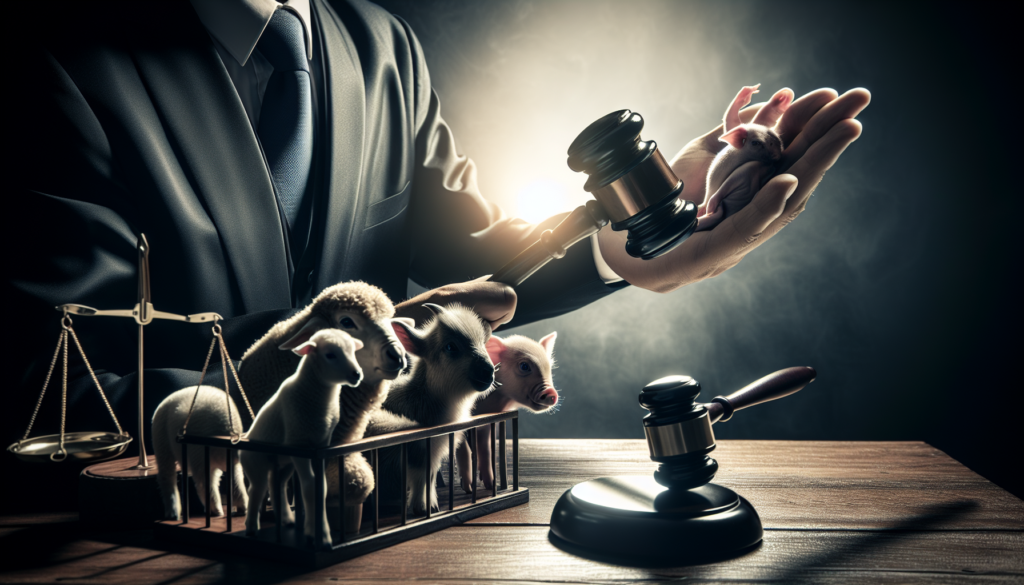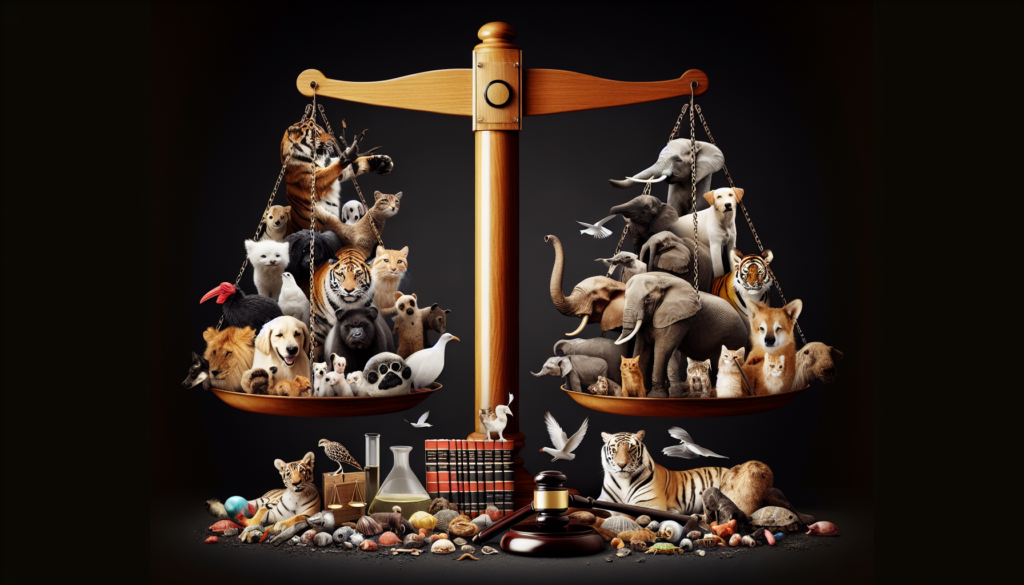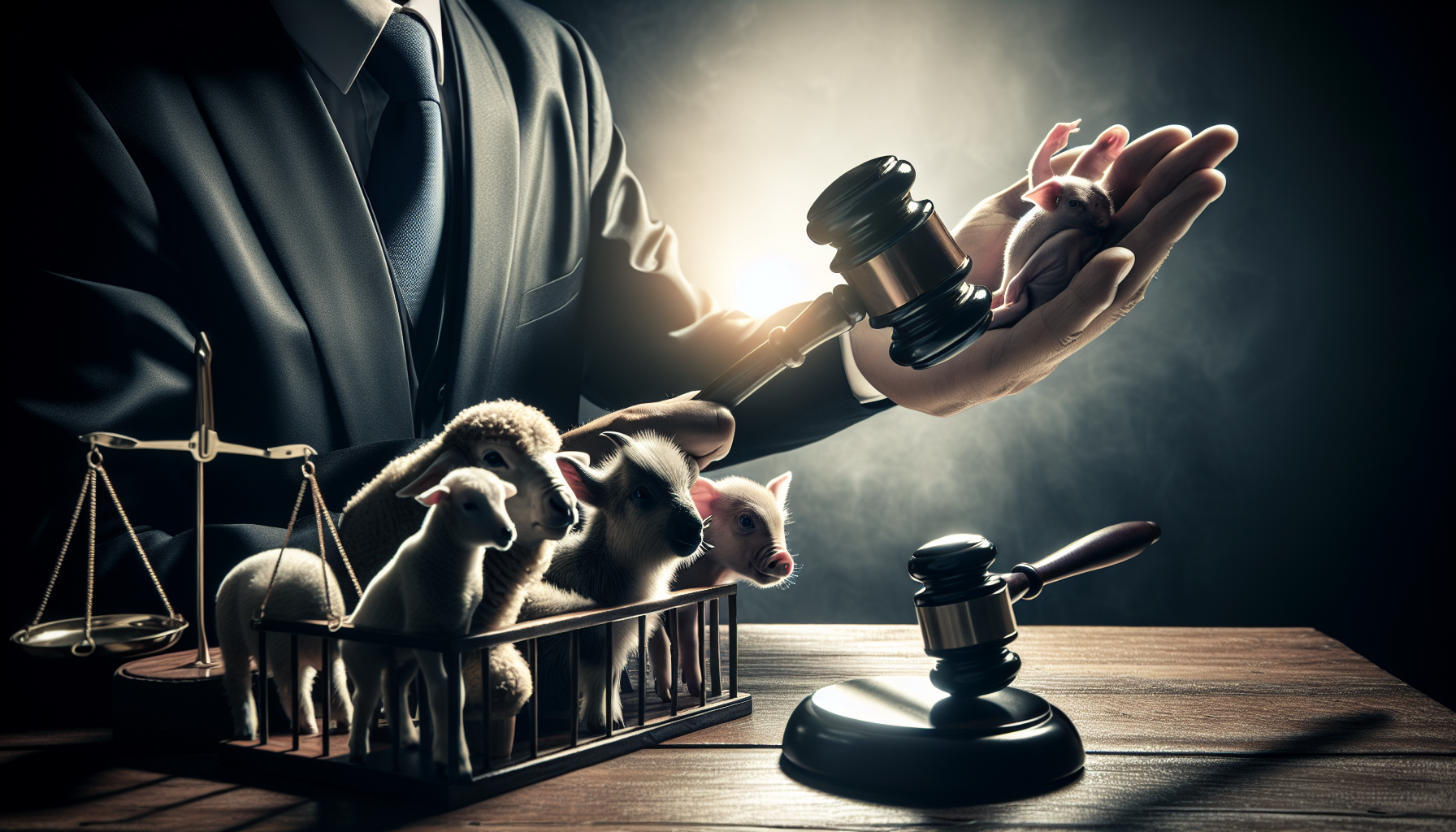In today’s society, there is growing concern and awareness regarding the issue of animal cruelty and its legal repercussions. As the love and compassion for animals continue to prevail, so does the demand for justice when it comes to their treatment. This article explores the depth of this issue, shedding light on the various forms of cruelty animals endure, and the potential legal consequences that offenders may face. Whether you are a passionate animal advocate or simply curious about the topic, this article will provide valuable insight into the ongoing battle against animal cruelty and the legal measures taken to protect these innocent creatures.
The Definition of Animal Cruelty
Understanding Animal Cruelty
Animal cruelty refers to any intentional act or omission that causes harm or suffering to animals. It encompasses a wide range of abusive behaviors, including physical violence, neglect, abandonment, and even psychological torment. Animals subjected to cruelty often endure pain, distress, and deprivation, which significantly compromise their well-being and quality of life.
Forms of Animal Cruelty
Animal cruelty can take various forms, each presenting immense harm to animals. Physical abuse involves inflicting pain through beatings, kicking, burning, or other violent acts. Neglect occurs when animals are denied essential care, such as food, water, shelter, and medical attention. Abandonment involves leaving animals alone without providing for their basic needs. Lastly, psychological abuse encompasses intentionally causing emotional distress or fear in animals through threats, isolation, or confinement.
Recognizing Animal Cruelty
Recognizing animal cruelty is crucial in combating this issue effectively. Some signs of animal cruelty include visible injuries or marks, such as fractures, burns, or open wounds that are not being treated. Chronic malnutrition, dehydration, unclean living conditions, and limited access to fresh air or exercise are also red flags. Additionally, behavioral signs like fearfulness, aggression, or excessive self-grooming may indicate past or ongoing abuse. It is important to keep an eye out for such signs and report any suspected instances of animal cruelty.
The Impact of Animal Cruelty on Animals
Physical Consequences of Animal Cruelty
Animal cruelty inflicts severe physical harm on its victims. The physical consequences may include broken bones, internal injuries, respiratory problems, trauma, and infections. Animals subjected to neglect may suffer from malnutrition, dehydration, and exposure to extreme weather conditions, leading to emaciation, organ failure, and even death. The pain and suffering endured by animals as a result of physical abuse are distressing and require immediate attention and intervention.
Psychological Effects on Animals
Animals that experience cruelty often suffer from significant psychological trauma. They may develop anxiety disorders, depression, and post-traumatic stress disorder (PTSD). These animals may exhibit fearful or aggressive behavior, excessive hiding, or even self-mutilation. The psychological effects of cruelty can be long-lasting, making it crucial to provide the necessary care and support to help animals recover mentally as well as physically.
Long-term Implications for Animal Welfare
Animal cruelty not only affects individual animals but also has broader implications for animal welfare as a whole. It normalizes violence and harm towards animals, perpetuating a culture of cruelty. When animal cruelty goes unchecked, it undermines society’s moral responsibility to protect and respect all living beings. Moreover, the long-term implications encompass public health concerns, as the mistreatment and neglect of animals can lead to the spread of diseases and pose risks to human well-being.

The Societal Impact of Animal Cruelty
Public Perception of Animal Cruelty
Public perception of animal cruelty plays a significant role in addressing this issue. As awareness grows, there is a stronger collective demand for stricter laws and regulations to prevent and punish animal cruelty. The public’s increased empathy towards animals has led to societal shifts in viewing animals as sentient beings deserving of compassion and respect. This shift in perception has pushed governments and organizations to take stronger action against animal cruelty.
Links Between Animal Cruelty and Other Crimes
Numerous studies have shown a strong correlation between animal cruelty and other types of criminal behavior, such as domestic violence, child abuse, and even serial offenses. Perpetrators of animal cruelty often escalate to harming humans, making it essential to address animal cruelty as a potential indicator of future violent acts. Recognizing and addressing animal cruelty can help prevent further harm to not only animals but also vulnerable individuals in society.
The Connection to Domestic Violence
Animal cruelty has been identified as a significant component of domestic violence. Perpetrators may harm animals as a means of exerting power and control over their victims. In many cases, animals are intentionally targeted to inflict emotional harm on the human victims, who may be emotionally attached to their pets. Recognizing the connection between animal cruelty and domestic violence is crucial in effectively addressing both issues and protecting all individuals involved.
Existing Legislation and Animal Cruelty
International Laws on Animal Cruelty
Animal cruelty is recognized as a global issue, leading to the establishment of various international laws and agreements aimed at protecting animals. The Universal Declaration of Animal Rights, drafted by the International League for Animal Rights, asserts animals’ inherent rights and calls for the abolition of animal cruelty. Additionally, the Convention on International Trade in Endangered Species of Wild Fauna and Flora (CITES) aims to conserve endangered species and regulate their trade to prevent cruelty.
National Laws and Statutes
Countries around the world have passed their own national laws and statutes to address animal cruelty. These laws differ in scope and severity of punishment but generally criminalize acts of cruelty, define minimum standards of care, and regulate the sale and trade of animals. National laws play a crucial role in setting legal precedents and providing a framework for justice and accountability in cases of animal cruelty.
Animal Welfare Acts
Many countries have enacted animal welfare acts to protect the well-being of animals and prevent cruelty. Animal welfare acts outline the rights and responsibilities of individuals and organizations, impose strict regulations on the treatment of animals, and establish agencies responsible for enforcing these laws. These acts often include provisions for licensing, inspection, and enforcement mechanisms to ensure compliance with animal welfare standards.

Legal Ramifications for Animal Cruelty Offenders
Criminal Charges and Penalties
Animal cruelty offenders can face criminal charges ranging from misdemeanors to felonies, depending on the severity of the offense and applicable laws. Misdemeanor charges are typically reserved for less severe cases, while felony charges may be imposed for acts of extreme cruelty or repeat offenses. Criminal convictions for animal cruelty can result in substantial fines, probation, community service, and even incarceration, sending a strong message that society does not tolerate abuse towards animals.
Fines and Imprisonment
Alongside criminal charges, animal cruelty offenders may face fines and imprisonment as penalties for their actions. Fines serve as a form of financial punishment, requiring offenders to pay a specified amount determined by the court. Imprisonment, on the other hand, involves the incarceration of the offender for a period determined by the severity of the offense and the applicable laws. These legal ramifications aim to deter future acts of cruelty and hold offenders accountable for their actions.
Animal Abuse Registers
Some jurisdictions have implemented animal abuse registers, similar to sex offender registries, to monitor and track individuals convicted of animal cruelty. These registers provide valuable information to law enforcement agencies, animal welfare organizations, and potential adopters, helping prevent animals from falling into the hands of convicted abusers. Animal abuse registers also serve as a means of monitoring and assessing the potential risks individuals may pose to both animals and society at large.
Enforcement of Animal Cruelty Laws
Role of Law Enforcement Agencies
Law enforcement agencies play a crucial role in enforcing animal cruelty laws. They investigate reports of suspected animal cruelty, collect evidence, and bring charges against offenders. Police officers and animal control officers often work together to rescue animals from harmful environments and ensure their immediate safety. The partnership between law enforcement agencies and animal welfare organizations is vital in addressing animal cruelty effectively.
Animal Control and Welfare Organizations
Animal control and welfare organizations play a vital role in enforcing animal cruelty laws and providing support to abused animals. These organizations often collaborate with law enforcement agencies in rescuing animals from abusive situations, providing them with the necessary medical care and rehabilitation. Additionally, they work to raise awareness, educate the public about animal welfare, and advocate for stronger animal protection laws.
Reporting Animal Cruelty
Reporting instances of animal cruelty is a key step in combatting this issue. Anyone who suspects or witnesses animal cruelty should promptly report it to the appropriate authorities, such as local law enforcement or animal control agencies. Providing detailed information and evidence, if available, can aid in the investigation and prosecution of animal cruelty cases. By reporting animal cruelty, individuals contribute to the protection and well-being of animals in their community.
Advocacy and Awareness for Animal Cruelty
Promoting Animal Rights and Welfare
Advocacy for animal rights and welfare is crucial in raising awareness and effecting change. Animal rights organizations and activists work tirelessly to promote the ethical treatment of animals, advocating for stricter laws, and driving public discourse on the issue. Through campaigns, public demonstrations, and media outreach, they strive to educate the public and foster a greater sense of empathy and responsibility towards animals.
Educational Programs and Campaigns
Educational programs and campaigns play a significant role in preventing animal cruelty. Schools, community organizations, and animal welfare groups collaborate to develop age-appropriate educational materials that teach children about animal welfare, responsible pet ownership, and the importance of compassion towards animals. Such programs aim to instill empathy and respect for animals from an early age, fostering a more compassionate society.
Supporting Animal Rescue and Rehabilitation
Supporting animal rescue and rehabilitation efforts directly aids animals affected by cruelty. Animal shelters and rescue organizations work tirelessly to provide a safe haven for abused animals, offering them medical care, rehabilitation, and ultimately finding them loving forever homes. By volunteering, fostering, or donating to these organizations, individuals can make a profound impact on the lives of animals who have experienced cruelty, providing them a chance for a better future.
Preventing Animal Cruelty
Public Education on Animal Welfare
Public education plays a vital role in preventing animal cruelty. By educating the public about the importance of animal welfare, responsible pet ownership, and the signs of abuse, individuals can make informed decisions and take appropriate action when necessary. Public awareness campaigns, workshops, and educational materials can empower individuals to become proactive advocates for animal welfare in their communities.
Promoting Responsible Pet Ownership
Promoting responsible pet ownership is crucial in preventing animal cruelty. Educating prospective pet owners about the commitment and responsibilities involved in caring for animals helps prevent impulsive pet acquisitions and subsequent neglect or abuse. Encouraging spaying and neutering, providing proper veterinary care, and providing a safe and enriched environment are all essential aspects of responsible pet ownership.
Encouraging Animal Adoption
Encouraging animal adoption from shelters and rescue organizations is another important step in preventing animal cruelty. By adopting animals in need, individuals not only provide a loving home but also help reduce the demand for animals bred in potentially unethical or cruel conditions. Adoption saves lives and offers a second chance to animals that have often experienced neglect or abuse, promoting a more compassionate society.
Investigating and Prosecuting Animal Cruelty Cases
Collecting Evidence of Animal Cruelty
Collecting comprehensive evidence in animal cruelty cases is vital for successful investigations and prosecutions. This evidence may include photographs, videos, witness statements, veterinary records, and any other relevant documentation. Gathering evidence meticulously ensures the accuracy and reliability of the case, helping build a strong legal foundation for holding the perpetrators accountable.
Building Animal Cruelty Cases
Building strong animal cruelty cases requires collaboration between law enforcement agencies, prosecutors, and forensic specialists. Together, they evaluate the evidence, establish a timeline of events, and identify any patterns of abuse. Legal professionals work closely with experts in veterinary forensics and animal behavior to analyze the evidence and present a clear and compelling case in court.
Working with Forensic Specialists
Forensic specialists, including veterinarians specializing in forensic medicine, play a crucial role in investigating animal cruelty cases. They provide expert analysis of injuries, conduct necropsies to determine cause of death, and contribute to understanding the intent behind the cruelty. The collaboration between law enforcement, legal professionals, and forensic specialists is essential in gathering a comprehensive body of evidence and ensuring the prosecution of animal cruelty cases.
International Efforts to Combat Animal Cruelty
Global Partnerships and Collaborations
International efforts to combat animal cruelty involve collaborations between governments, organizations, and experts worldwide. Global partnerships, such as the World Animal Protection organization, facilitate the exchange of information, best practices, and resources among countries. These collaborations aim to harmonize animal protection standards, implement effective legislation, and improve the enforcement of existing laws.
Efforts to End Animal Cruelty in Various Countries
Countries around the world are taking various initiatives to combat animal cruelty. Some have established specialized units within their law enforcement agencies to investigate and enforce animal cruelty laws. Others have implemented mandatory animal welfare education in schools or introduced comprehensive animal protection legislation. These initiatives demonstrate the commitment of countries to address animal cruelty and promote animal welfare.
Challenges and Future Initiatives
Despite significant progress, challenges remain in combating animal cruelty globally. Limited resources, inadequate legislation, and the complexity of prosecuting cases hinder the fight against animal cruelty. However, future initiatives aim to address these challenges through improved coordination between countries, enhanced legislation, and capacity building. By working together, we can continue to make strides in ending animal cruelty and ensuring the well-being of animals worldwide.
In conclusion, animal cruelty is a serious issue that affects the well-being of animals, individuals, and society as a whole. Recognizing the signs of animal cruelty, enforcing legislation, and promoting awareness and education are vital steps in addressing this issue. By advocating for animal rights, supporting animal rescue efforts, and promoting responsible pet ownership, individuals can make a difference in preventing animal cruelty and creating a more compassionate world for all beings.

